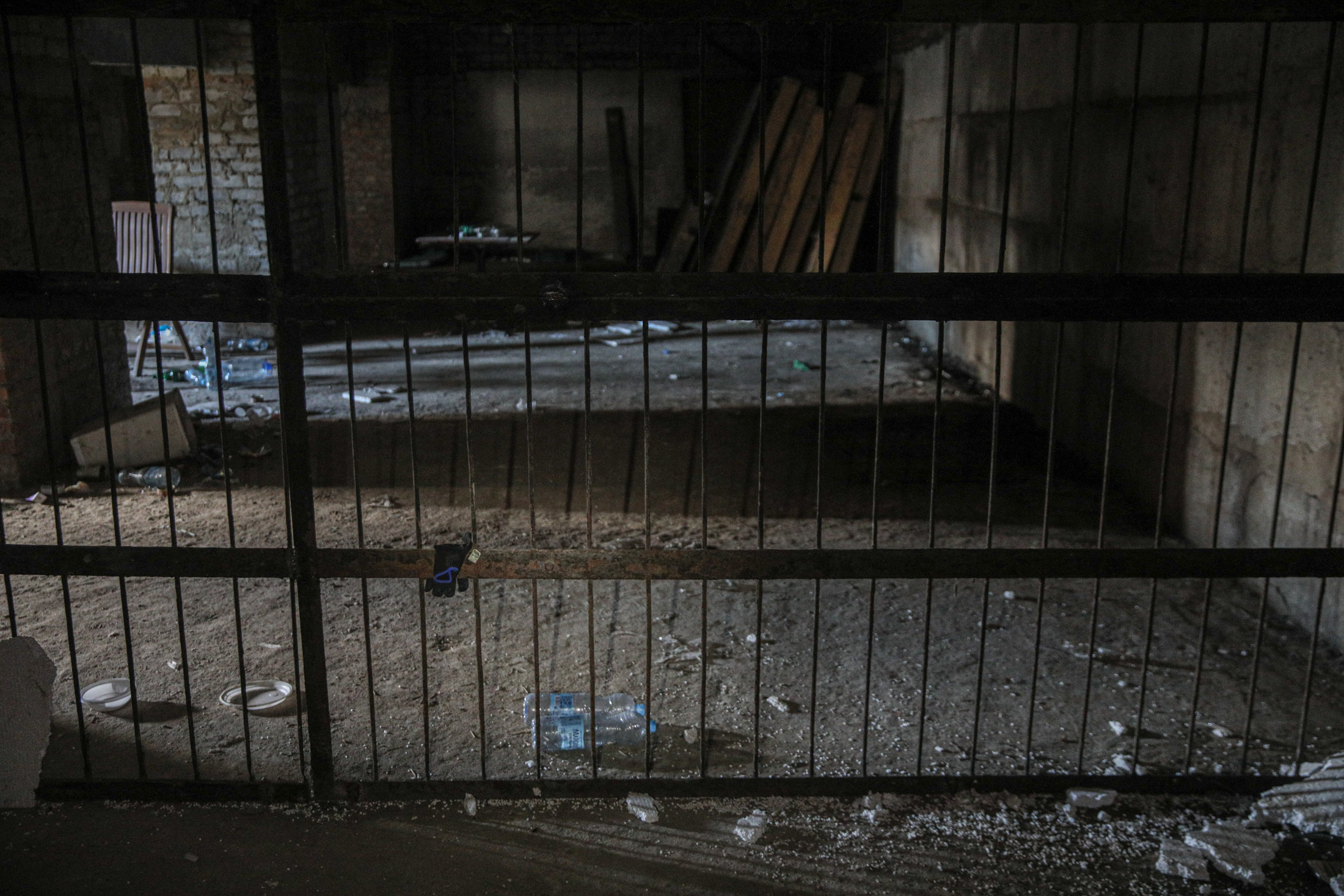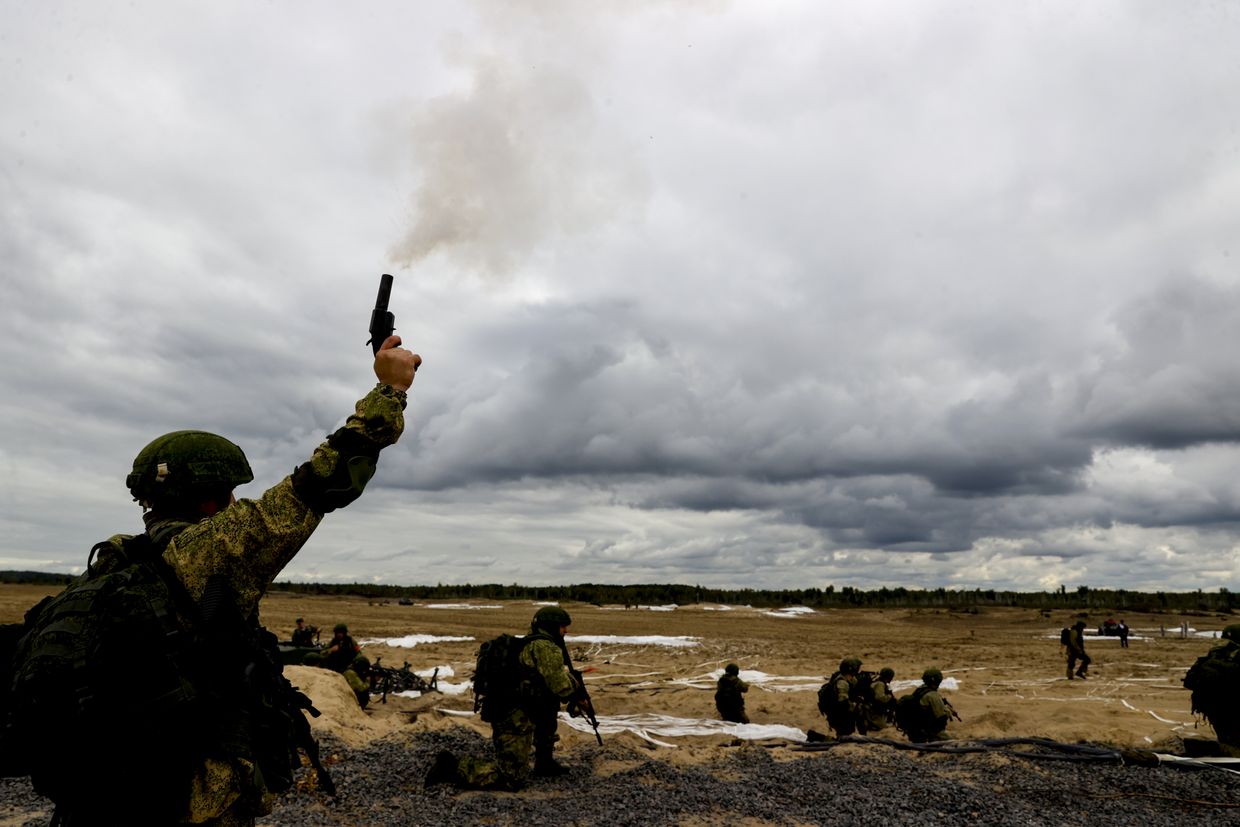Belarus Weekly: Russians tortured Ukrainians in Belarus at start of full-scale invasion, investigation shows

Russian troops operated a torture chamber on Belarusian state-owned property in 2022, journalistic investigation reveals.
Over 150 Russian drones flew into Belarusian airspace in November — three times the previous monthly record of incursions.
The European Parliament urges stronger sanctions on Belarus, Iran, and North Korea for aiding Russia’s war effort.
Sanctioned Belarusian potash producer Belaruskali files 1 billion euro arbitration claim against Lithuania over terminated transit.
Nineteen foreign nationals jailed in Belarus for alleged "undercover activities," Viasna human rights group reports.
Russian troops operated torture chamber for Ukrainians in Belarus in 2022, media reports
Russian troops operated a torture chamber on government-owned property in Belarus in the spring of 2022, the Belarusian Investigative Center (BIC) reported on Nov. 28.
Ukrainian prisoners of war and civilians abducted from Ukraine’s Kyiv Oblast were held in the town of Naroulia, some 50 kilometers from the Belarusian-Ukrainian border, according to BIC.
The torture chamber was reportedly operated between March and May 2022, in the early days of the full-scale invasion.
Lawyer Yulia Polekhina, working with the Sich human rights group, said that prisoners were tortured there. Polekhina’s claims echo those of former prisoners who went through Naroulia.
“They beat civilians there really hard – you could hear constant screaming there,” Bohdan Lysenko, a soldier with the Ukrainian Armed Forces who was captured by the Russian military and brought to the camp in March 2022, said in a comment to BIC.
According to the investigation, the camp in Naroulia was located in a compound on Kamsamolskaya Street — premises owned by the state-owned catering and food procurement company Pripyatski Alyans.
The company did not comment on the allegations and said local authorities should be contacted with requests for information.
151 Russian drone crossed into Belarus in November, record-high number
One hundred and fifty-one Russian drones crossed into Belarusian airspace in November, which was a nearly three-fold increase on the previous month, the Belarusian Hajun military monitoring group has reported.
Russian drone incursions into Belarus began in July, and have since grown from infrequent, isolated instances to record high numbers.
In November, Belarusian Hajun spotted 148 Kamikaze-type drones and three reconnaissance drones of unknown type. Amid almost daily incursions, Belarusian aviation downed three UAVs; while another 82 drones returned to Ukraine or Russia, and the locations of a further 66 were lost, the monitoring group says.

Russia’s overnight attack on Ukraine on Nov. 24-25 with 145 UAVs saw a record 38 Shakhed-type drones veer off course and head into Belarus.
The spike of incursions has occurred in tandem with intensified Russian drone attacks on Ukraine, to which Ukraine says it has responded with improved electronic warfare measures. The Institute for the Study of War wrote, citing Ukrainian military expert Petro Chernyk, that Ukrainian forces can either “ground” the Shaheds, render them “locationally lost,” or misdirect them to fly into Russian or Belarusian airspace.
Belarusian authorities have so far confirmed downing only two Russian drones over Belarus: over the southern city of Homel and its surrounding oblast on Sept. 5 and on Oct. 20. One UAV crashed over Kalinkavichy on Oct. 4. Although no casualties were reported, authorities subsequently detained the owner of the house from which a video of the crash was recorded.
Belarusian dictator Alexander Lukashenko has previously said that the Belarusian Air Force downs “a lot of drones,” claiming on Oct. 4 that both Russian and Ukrainian drones had breached Belarus’s airspace.
No proof of Ukrainian drones entering Belarusian airspace has ever been presented by the Belarusian authorities, however.
Minsk never publicly raised objections about the reported drone incursions with Moscow — a key ally.
European Parliament calls for strengthened sanctions against Belarus, Iran, North Korea
The European Parliament has urged its member states to “further broaden and strengthen sanctions” against Belarus, Iran, and North Korea for aiding Russia’s aggression against Ukraine, according to a resolution published on Nov. 28.
Sanctions have already been imposed on Belarus for its role as a co-belligerent in Russia’s war. However, not having faced such a strict Western embargo as Moscow, Minsk has been helping Russia to side-step sanctions on military and dual-use goods.
According to the resolution, as well as providing its territory for Russia to stage attacks on Ukraine, Belarus has supplied Russia with “substantial deliveries” of arms and ammunition.
In addition to broadening sanctions against Belarus, Iran, and North Korea, the MEPs called to add Chinese entities and individuals supportive of Russia’s aggression to the EU sanctions list.
The parliamentarians denounced Belarus, Iran, and North Korea and warned of the implications of authoritarian states forming alliances.
Commenting on the new resolution, Pavel Latushka, a member of Belarusian exiled opposition leader Sviatlana Tsikhanouskaya’s shadow cabinet, emphasized the need for the harmonization of sanctions.
“It is a big mistake to help Ukraine while allowing Russia to bypass sanctions through Lukashenko,” Latushka said.
Belarusian companies supplied Russia with $125 million worth of microchips, $400,000 of which Russia obtained in circumvention of sanctions imposed on both countries, according to a recent investigation by the Belarusian Investigative Center (BIC). About 10,000 microchips, including ones from the United States, Germany, and Finland, used in producing Su-34 and Su-35S fighter jets and Kalibr cruise missiles, were reportedly delivered between September 2022 and June 2024.
Norwegian risk consultancy firm Corisk estimates that 10 billion euros ($10.8 billion) worth of goods reached Russia via Belarus in 2022-2023.
Sanctioned Belarus’s potash fertilizer producer files 1 billion euro arbitration claim against Lithuania
Belarusian potash fertilizer producer Belaruskali has filed a statement of claim against Lithuania in the arbitration process worth 1 billion euros (over $1.05 billion), Belarusian state-owned news agency Belta reported on Dec. 3.
The world’s second-largest producer of crop fertilizers and Belarus’s top exporter, Belaruskali, faced European sanctions in 2021 over its key role in funding the regime of Belarusian dictator Alexander Lukashenko, and the repressions against workers on strike, following the fraudulent 2020 presidential elections.
In February 2022, Lithuania terminated the transit agreement of its state-owned railway company with Belaruskali, forcing the company to reroute from the Lithuanian port of Klaipeda to Russian ports.
In March 2022, the European Commission banned the import and transit of Belarusian potash due to the Lukashenko regime’s support for Russia’s aggression against Ukraine. Belaruskali and its then-director Ivan Halavaty and exporting company BKK tried to argue against the ban in the Court of Justice of the European Union.
However, the court refused to lift the sanctions on Sept. 18, 2024, confirming the role of Belaruskali in funding the Lukashenko regime and involvement in the suppression of civil society.
19 foreigners jailed in Belarus for ‘undercover activities,’ Viasna reports
At least 19 foreign citizens have been tried and sentenced in Belarus for alleged “undercover activities,” the Viasna Human Rights Center reported on Nov. 29.
Persecution of foreign nationals intensified following the beginning of the full-scale Russian invasion of Ukraine, according to the Belarusian human rights organization.
Political prisoners from Ukraine, Lithuania, Latvia, Poland, Japan, and Germany have been charged under vaguely defined cases of “cooperation” with an unspecified wide range of foreign or international entities.
The crime does not imply the handling of classified information, but still comes with a stiff three to seven-year prison sentence for those convicted.
Among the accused was Japanese citizen Nakanishi Masatoshi, who was arrested in July 2024 for alleged gathering of military intelligence. In another case, Ukrainian citizen Artem Makovey, who has been living in Belarus since 2009, was charged with six years of imprisonment. As with most “undercover activities” cases, the trials were held behind closed doors, so the exact nature of the accusations remains unknown to human rights groups.
According to Ukraine’s ambassador at large, Ihor Kyzym, at least 12 Ukrainians are being held in Belarus in politically motivated cases.
As part of the historic East-West prisoner swap in August, Belarus released a German citizen, Rico Krieger, who had been sentenced to capital punishment. His charges also included “undercover activities.“
After crushing public protests following fraudulent presidential elections in 2020, Lukashenko’s regime resorted to politically motivated trials to silence its opponents. Since the onset of the all-out Russian invasion of Ukraine, Belarusian law enforcers have also been cracking down on any form of support of Ukraine.
Currently, Belarus has 1,289 political prisoners. As of February 2024, at least 94 Belarusians were sentenced to prison terms, and 1,671 underwent detention for expressing pro-Ukrainian views.














